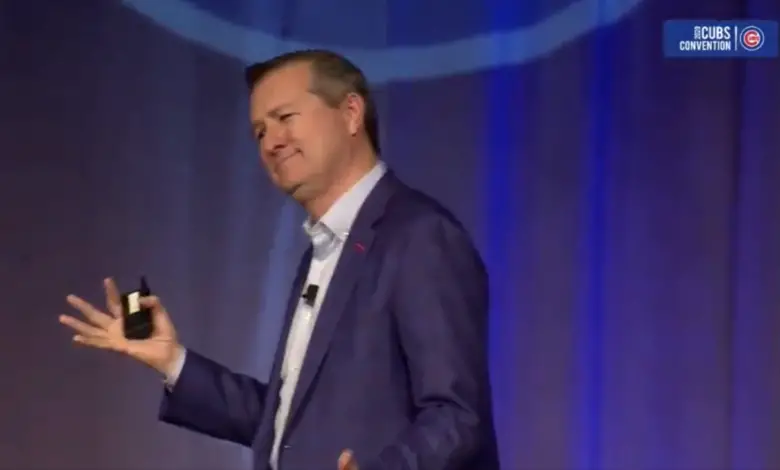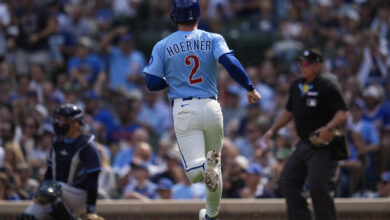
Perspective on 2020 Season Negotiations: Only 9 Owners from 1994 MLB Strike Still Own Their Teams
History paints the 1994-95 Major League Baseball strike as one of the league’s most damaging events. Thousands of fans were disenfranchised and it took several years for the game to return to its previous level of popularity, if it ever really did. Even some inside the game saw that strike as a turning point.
“I never felt the same way about baseball again after that,” Dave Stewart, a four-time 20-game winner and former General Manager of the Arizona Diamondbacks, told USA TODAY Sports. “Even today, after all of my years in baseball, the passion I have for the game has never been the same. All because of that strike.”
MLB’s return from the COVID-19 shutdown could be remembered similarly if the two sides can’t agree to a path forward. Only a few weeks ago, there was industry-wide hope that owners and players would avoid acrimony with one another and fans by agreeing to a start date around the symbolic Fourth of July. Today, however, that’s been replaced by pessimism as some believe it’ll take a miracle to conduct a 2020 season.
Though at least some public blame will be placed on the players, there can be no mistake that it will rest solely on the owners. The focus on maximization of short-term profits — or minimization of losses — hurt the sport a quarter-century ago and now threatens to do the same. Perhaps the most frustrating aspect of this impasse is that most of these current owners won’t still be in control of their teams two decades from now.
Of the 30 owners negotiating a 2020 season, only nine owned their teams during the 1994-95 strike. The other owners sold their franchises for as much as $2 billion, which is where the real profit comes into play. Tom Ricketts recently reiterated that owning a professional sports team isn’t a way to accumulate annual cash, lamenting the “biblical” losses from a season played without fans.
But if asset appreciation is the ultimate goal, do immediate losses really matter? The owners in 1994 might not have been thinking about the health of MLB in the years and decades to come, just as the current group doesn’t appear to be looking beyond their own concerns with debt service.
| Team | Principal owner(s) | Operating entities | Purchase price | Year |
| Kansas City Royals | John Sherman | Kansas City Royals Baseball Corp. | $1,000,000,000 | 2020 |
| Miami Marlins | Bruce Sherman | Miami Marlins LP, Miami Marlins Inc., Miami Marlins Baseball Ltd. | $1,300,000,000 | 2018 |
| Los Angeles Dodgers | Mark Walter | Guggenheim Baseball Management, Los Angeles Dodgers, Inc. | $2,000,000,000 | 2012 |
| San Diego Padres | Ron Fowler | The Padres Group, Padres LP, Padres Inc. | $800,000,000 | 2012 |
| Houston Astros | Jim Crane | Crane Capital Group, Houston Astros Inc., Houston Astros, LLC | $615,000,000 | 2011 |
| Texas Rangers | Ray Davis | Rangers Baseball Express, Texas Rangers Baseball Club | $593,000,000 | 2010 |
| Chicago Cubs | Thomas S. Ricketts | Chicago National League Ball Club Inc. | $845,000,000 | 2009 |
| Atlanta Braves | Liberty Media | Atlanta National League Baseball Club Inc. | $450,000,000 | 2007 |
| Cincinnati Reds | Bob Castellini | Cincinnati Reds LLC | $270,000,000 | 2006 |
| Washington Nationals | Lerner Enterprises | Washington Nationals Baseball Club LLC | $450,000,000 | 2006 |
| Milwaukee Brewers | Mark Attanasio | Milwaukee Brewers Baseball Club, Milwaukee Brewers Holdings LLC | $223,000,000 | 2005 |
| Oakland Athletics | John J. Fisher | Oakland Athletics Limited Partnership | $180,000,000 | 2005 |
| Tampa Bay Rays | Stuart Sternberg | Tampa Bay Rays Ltd. | $130,000,000 | 2005 |
| Los Angeles Angels | Arturo Moreno | Angels Baseball LP, Moreno Baseball LP | $184,000,000 | 2003 |
| Boston Red Sox | John W. Henry | Boston Red Sox Baseball Club LP, Fenway Sports Group LLC | $660,000,000 | 2002 |
| New York Mets | Fred Wilpon | Sterling Doubleday Enterprises LC, Mets Partners Inc. | $391,000,000 | 2002 |
| Toronto Blue Jays | Rogers Communications | Rogers Blue Jays Baseball Partnership, Toronto Blue Jays Baseball Ltd | $140,000,000 | 2000 |
| Cleveland Indians | Larry Dolan | Cleveland Indians Baseball Co. LP | $323,000,000 | 1999 |
| Pittsburgh Pirates | Robert Nutting | Pittsburgh Associates LP, Pittsburgh Baseball Inc. | $92,000,000 | 1996 |
| Arizona Diamondbacks | Ken Kendrick | AZPB LP, AZPBI Inc. | $130,000,000 | 1995 |
| St. Louis Cardinals | William DeWitt, Jr. | St. Louis Cardinals LLC, St. Louis National Baseball Club Inc. | $150,000,000 | 1995 |
| Baltimore Orioles | Peter Angelos | Baltimore Orioles LP, Baltimore Orioles Inc., Baltimore Baseball Club Inc. | $173,000,000 | 1993 |
| Colorado Rockies | Charlie Monfort | Colorado Baseball Partnership, Colorado Rockies Baseball Club Ltd. | $95,000,000 | 1992 |
| Detroit Tigers | Christopher Ilitch | Olympia Entertainment, Detroit Tigers Inc. | $82,000,000 | 1992 |
| San Francisco Giants | Charlie Johnson | San Francisco Baseball Associates LP, SF Giants Baseball Club | $100,000,000 | 1992 |
| Seattle Mariners | John W. Stanton | Baseball Club of Seattle LP, Baseball of Seattle Inc. | $106,000,000 | 1992 |
| Minnesota Twins | Jim Pohlad | Minnesota Twins, MTI Partnership LLP | $44,000,000 | 1984 |
| Chicago White Sox | Jerry Reinsdorf | Chicago White Sox Ltd., Chisox Corp. | $20,000,000 | 1981 |
| Philadelphia Phillies | John S. Middleton | The Phillies | $30,000,000 | 1981 |
| New York Yankees | Hal Steinbrenner | Yankee Global Enterprises | $8,700,000 | 1973 |
One perspective on the current state of affairs with ongoing negotiations between the league and players is that the owners have the right to run their businesses as they wish. Some owners might believe canceling the 2020 season best aligns with their financial goals, so they’d just as soon not pay out additional player salaries if they can avoid it. They can probably sell for billions over the next few years, but the uncertain present might have them hedging their bets.
That leads to another reality, which is that ongoing disputes jeopardize the careers of existing MLB players and interest of current fans while also discouraging the introduction of baseball to future fans and players. MLB already has difficulty reaching younger fans. The average viewer of MLB is 53 years old, whereas the average viewer of the NBA is 36 years old. An extremely shortened, uninspiring season — or having no season at all– isn’t going to help MLB bring that age down.
At whatever point the league returns, the effects of COVID-19 on the global economy will add to MLB’s potential troubles. Fans were reluctant to return after the strike, causing financial distress for some franchises that took years to recover from. Sammy Sosa and Mark McGwire often receive credit for saving the sport with their entertaining home run chase in 1998, but that also happened during a time in which economic growth was strong.
What will an MLB return look like in an age of economic and cultural distress after the potential cancellation 2020 season? And keep in mind that other leagues have already announced plans to return, so this isn’t just a matter of baseball existing within its own ecosystem here. MLB owners apparently don’t see much impact on their product, which may be easier when they probably won’t own their teams 20 years from now.

